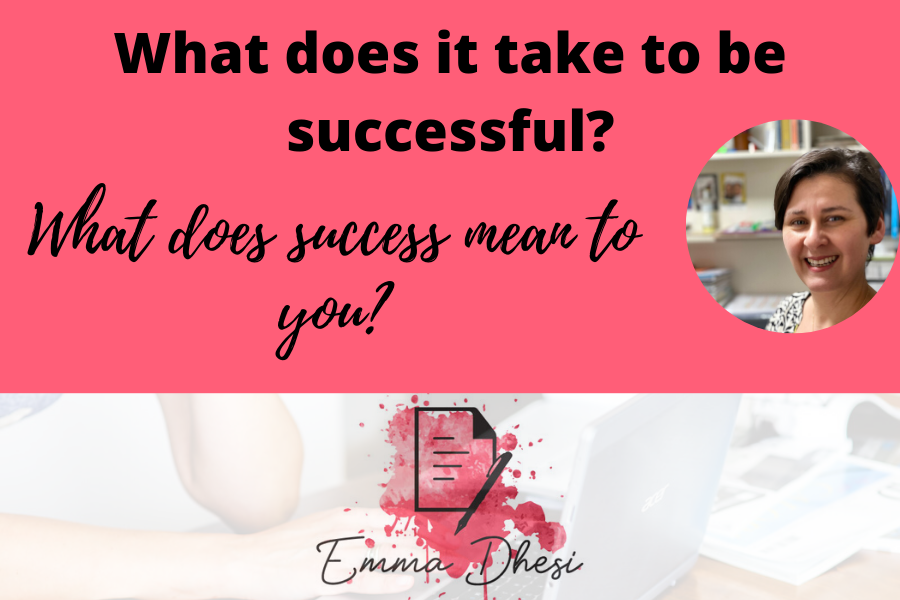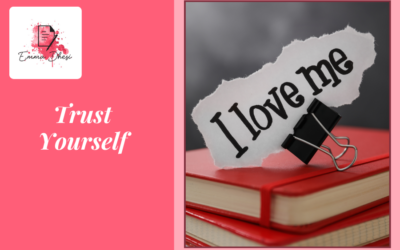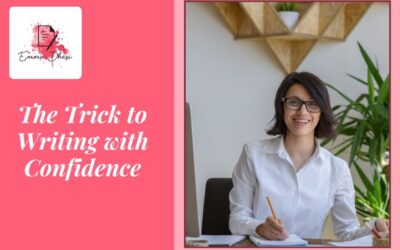What does success mean to you?
What does it take to be successful?
Before you ask that question, you must first of all know what success means to you. Is success attending a weekly class in your local area? Is success finishing a first draft and leaving it there?
Or is success drafting and redrafting before either finding an agent or publishing your book?
Once you know what your idea of success is, the next step is to be intentional about your writing.
Comparisonitis
It’s scary when you first start writing.
You have such high expectations of yourself that really there’s no way you can live up to them in the early stages of your career. You’re setting yourself up for failure.
You are pitting yourself against well-established authors who have been writing for possibly decades. Writers whose books have been edited time and time again before they hit the market.
Remember, too, that agented (is that even a word?!) novelists have to get buy in from their agent before they even start writing a book. Sometimes they need to provide the synopsis for two or three potential books. The agent will then decide which is the most commercially viable, and then the writer will write the book.
You and I do not have the power of an agent to determine what we should write before we write it. You write the stories you enjoy reading. You write what you love. How can you compare yourselves to novelists who have that kind of commercial clout behind them?
You can’t and so you don’t.
So the first thing you must do if you want to be successful is to stop comparing yourself to your literary heroes. You’ll immediately remove all the pressure. You cannot compete with them.
Not yet, anyway!
Face your fears
Now you’ve stopped comparing yourself to established authors, it’s time to face your internal fears. Those feelings of vulnerability. The ones that wipe out any faith you once had in yourself.
After all, what’s the worst that can happen? The worst that can happen is you don’t find an agent for this manuscript. The worst that can happen is that you decide not to publish it. Or that you press publish and nobody buys it.
None of these will kill you. You might be a little embarrassed if nobody buys your book (although I doubt that will happen!) But that’s better than being a famous author who gets a bad review in the national press!
But even if all these things do happen, stop seeing it as a negative and reframe it as a positive experience.
With every manuscript you write, you are improving your craft and setting yourself up for future success.
No more apologies
Before I made the commitment of finishing my first novel I was very apologetic for my writing. Before I’d written my first book I had already told myself I wasn’t good enough, and at the end of my first draft I was convinced it wasn’t very good and I should just start again.
I was embarrassed by what I’d written. I didn’t give myself the chance to to work on the writing or improve it. I squirreled it away and tried to forget about it, as if my thoughts and stories were unworthy.
I encourage you to stop apologizing for your writing. I encourage you to accept that you’re at the start of your journey and there is a lot of fun and a lot of challenges ahead. Just like in your novel!
Stop feeling unworthy because you’re only just starting. You have stories worth telling. Only you can tell them.
Acknowledge and accept that you are at the beginning of this journey. I am at the beginning of my journey. And what a great place to be! The only way you can go is up, and that is exciting.
You don’t have the pressure of being at the top of the literary ladder and the pressures of staying there. You don’t have the pressure of justifying all the publicity and expense that placed upon you and your book.
By being at this stage in your writing career you have an enormous amount of freedom. You can write what you want and be as playful as you want. Nobody is watching.

From time to time, I link to products or services I love using with affiliate links. This means that I may receive a small percentage or fee for referring you to any product you may purchase from one of those sites. It does not cost you anything. These small fees help sustain my small business. I truly appreciate your support.
No more overwhelm
Step up to the plate, face your fears and get your manuscript finished. You won’t regret it, I promise.
There are a lot of moving parts to a novel and it can feel very intimidating trying to put them all together.
By being organised and intentional with your writing you will reduce all the overwhelm because once they are in place, you will know what needs to be done. You will know what needs to be included in your story.
How do I know this?
I know because I know you are a reader. I know you have read millions of words, possibly thousands of books. For this reason, I know you can write a compelling story.
The difficulty at the moment is, you don’t trust yourself.
Trust yourself
If you want to be successful, you need to trust your instincts and your talent. You must take the next step, and that next step is finishing your manuscript.
You must finish your first, rough, draft. That’s the hardest bit. Once you’ve done that you’re off to the races.
Now you have something to edit. Now you have something to improve. This is where the magic happens.
So trust yourself and write your first draft.
How do you do that?
Trusting yourself and writing your first draft starts with understanding what it is you are working towards, what success means.
It means being intentional with your time and your creativity.
Not writing as and when the mood takes you, but being organised and happy in your work.
So if you are a plotter, this means plotting out your novel, which might simply be a list of bullet points.
Or you could be at the other end of the spectrum, like P. D. James. Her plots were so detailed, so thorough, that by the time she had finished, she had more or less written the novel. All she had to do was join the dots and make the story cohesive.
If you are a discovery writer, it’s about having a basic idea of your character and a feel for what might happen in the story. Even though you don’t know exactly what will take place you have a rough idea.
Maybe it’s your character you start with. You need to understand that person very well to know how they will react in all the tough situations you put them in.
What about where your story is taking place? Is it a large part of the story and can be described as a character? Or is it very much a backdrop to the story?
By being intentional with all of these elements, you put yourself in a better position for success.
Conclusion
So think about what success means for you. Think about what you want for your writing, and for yourself.
Why are you writing? Is it a hobby? Or do you have ambitions for yourself? Do you want to earn an income from your writing?
What will that income do for you? Will it help pay down your mortgage? Will it pay for your holidays? Or maybe you just want to pay down your credit card?
There are a myriad reasons you want to write a book so think about what success means for you and what you need to do to be successful.
Imagine putting all those moving parts into order, reducing your overwhelm and being free to write your book.
How Can I help?
To help put these moving parts into place, I have devised a free checklist for you. It’s super simple and can be used either before you write to ensure you’ve got your ducks in a row. Or, you can use during the editing phase to guarantee you’ve included all the key elements.
Grab your FREE copy below.
If this article was useful, you’ll love:
If you are trying to write your novel, but lack the confidence or self-belief to see it through to the end, then join me in Unlock Your Creative Block.
It's the only programme that gets to the heart of why you can't finish your book, even though it's what you want to do more than anything else in the world.

Emma Dhesi writes women’s fiction. She began writing seriously while a stay at home mum with 3 pre-school children.
By changing her mindset, being consistent and developing confidence, Emma has gone from having a collection of handwritten notes to a fully written, edited and published novel.
Having experienced first-hand how writing changes lives, Emma now helps beginner writers find the time and confidence to write their first novel.
If you’re ready to upgrade your writing tools, the first place you should look is Scrivener. It is tailor made for long projects in particular.
No matter what you write, Scrivener provides everything you need to start writing and keep writing.




0 Comments